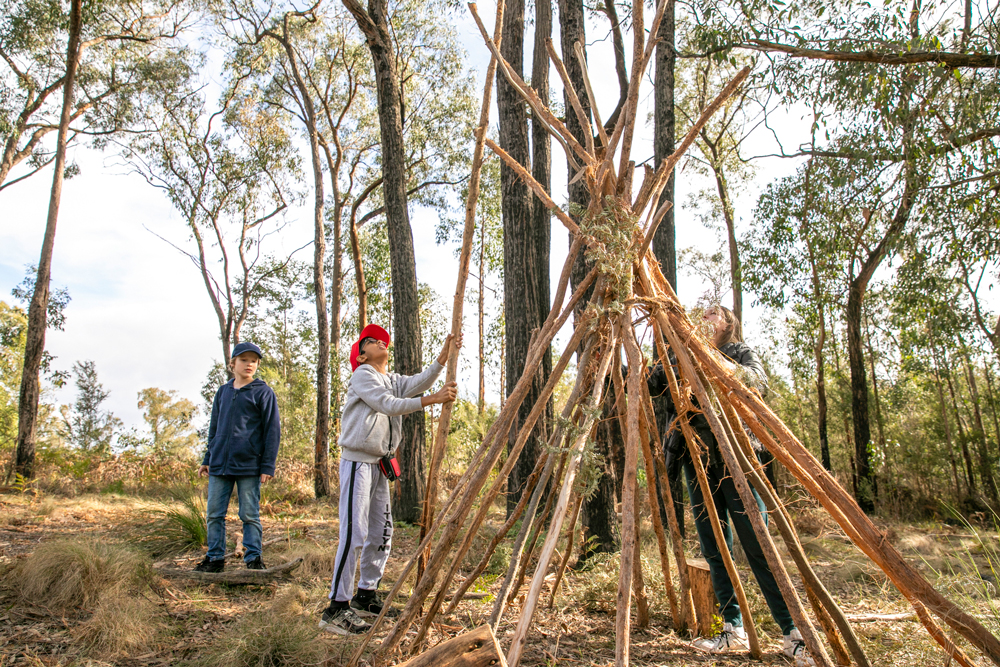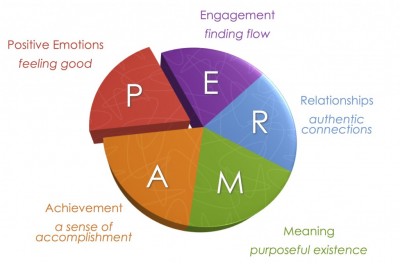
Taking learning outside the classroom provides the perfect setting to foster students’ wellbeing and happiness, as Larissa Robbins explains.
Remember your own experiences of school camp? The vast Australian bushland, the late night chats, toasting marshmallows, challenging yourself, the undercooked rice, making new friends? Whatever your experiences, you not only survived but thrived! We remember school camp because we were expected to act as adults, given responsibility and encouraged to take risks and rely on ourselves and each other.
Outdoor education at Wesley starts at Year 3, with students participating in a series of progressively structured learning experiences across three unique outdoor campsites, Chum Creek near Healesville, Lochend near Portland and Mallana near Lakes Entrance. Far from giving parents a week off, outdoor education experiences are designed to develop a broad range of social and cognitive skills, many which have been identified as crucial for future workplaces.
A recent study by Dr Radhika Gorur for the Wesley College Institute for Innovation in Education found that programs which ‘disrupt [the] familiar school hierarchies and practices’ of the classroom directly support students’ learning about ‘self’. Such programs develop a broad and student-defined concept of a successful self and understanding of themselves, Dr Gorur notes.
Outdoor education meets some of our key aims at Wesley to build students’ resilience, social and emotional capacity, creative, critical and collaborative thinking skills.
A recipe for happiness
A key takeaway from the Program for International Student Assessment (PISA) conducted by the Organisation for Economic Cooperation and Development (OECD) is that students who experience higher levels of wellbeing and life satisfaction achieve higher academic results. The OECD report finds a strong association between students’ satisfaction with life and the time they invest in studying, which in turn enables them to engage more deeply in their learning and improve their academic performance.
 The good news is that students’ satisfaction with life can be developed. How? By deliberately putting students in challenging situations that build their competence, resilience, persistence and motivation, and foster trust and a connection to place and community. These benefits have been widely studied within the realm of positive psychology, whose founder Martin Seligman developed a model of happiness and wellbeing, called PERMA.
The good news is that students’ satisfaction with life can be developed. How? By deliberately putting students in challenging situations that build their competence, resilience, persistence and motivation, and foster trust and a connection to place and community. These benefits have been widely studied within the realm of positive psychology, whose founder Martin Seligman developed a model of happiness and wellbeing, called PERMA.
While the five pillars of Seligman’s model of happiness and wellbeing, from feeling a sense of accomplishment to making authentic connections, are developed in every classroom at Wesley, it’s easy to see all can be gained from school camp experiences.
Outdoor education continues to be about much more than spending time in the bush. A student may never again be asked to climb a high ropes course or to use friction to start their own cooking fire, but the lessons they have learned will show them that they have within themselves all the skills and resourcefulness they need to tackle any challenge.
Larissa Robbins is the Acting Head of Outdoor Education
